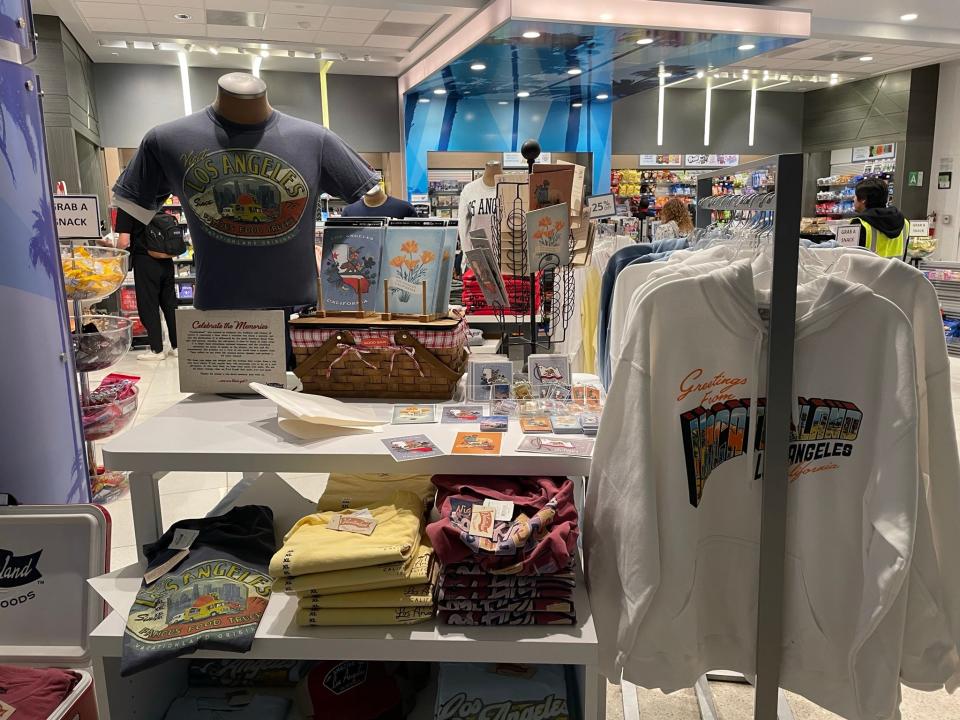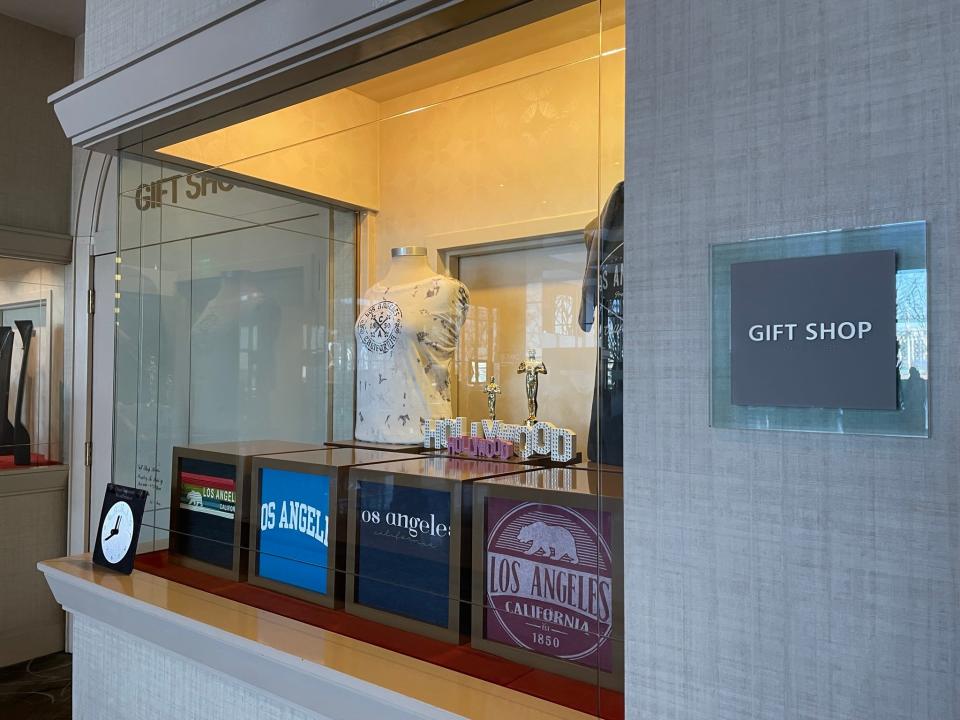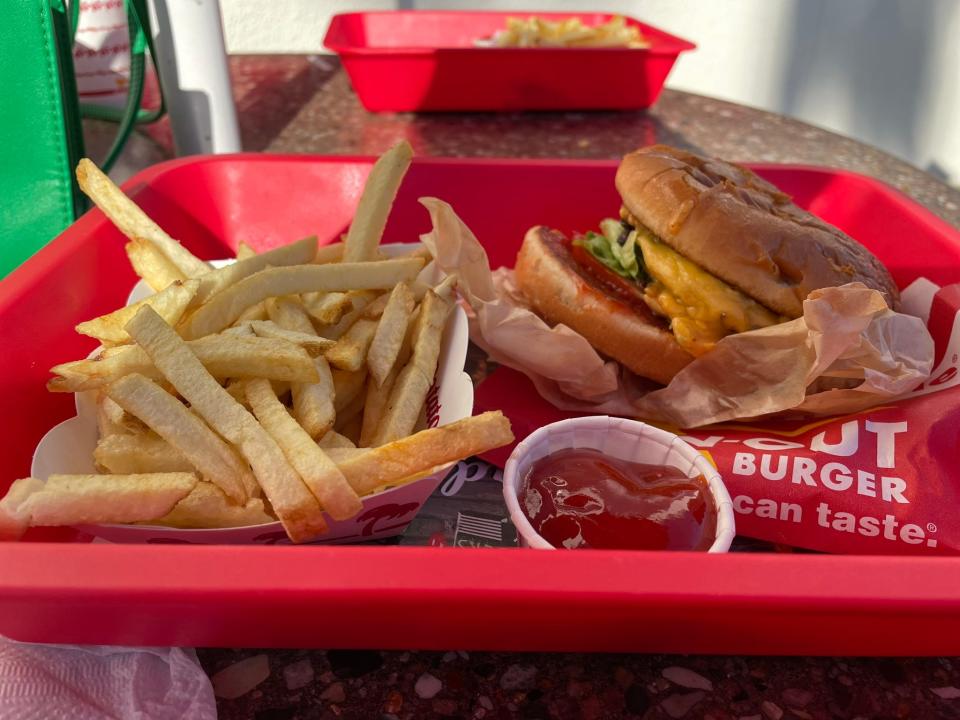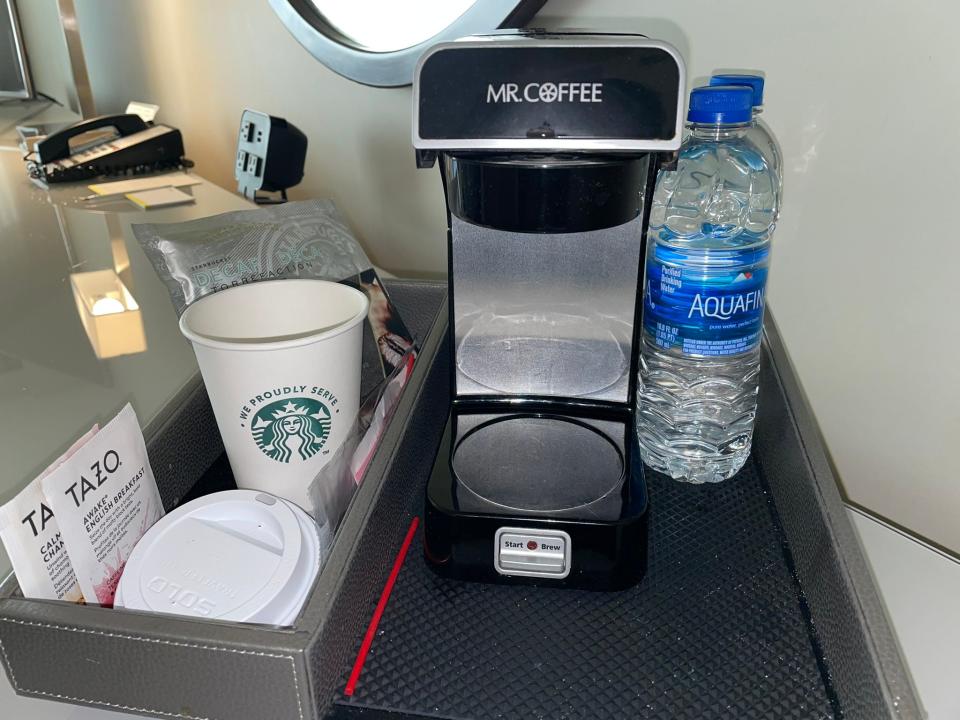I've been to all 50 states. Here are 5 things I never waste my money on when I'm in a new city.

As a traveler who's visited all 50 states, I try to be intentional about how I spend money on trips.
I stopped buying overpriced souvenirs for my loved ones and instead send them photos of my travels.
Whenever possible, I avoid booking rental cars, which can be expensive to park and fuel.
Travel expenses can add up quickly. After visiting all 50 states, I've learned to be intentional about how I spend my money.
Whenever I travel to a new city, I try not to waste my money on the following things.
Overpriced souvenirs

I stopped shelling out cash on certain souvenirs a long time ago.
This shift happened after I learned the difference between buying souvenirs for myself and buying souvenirs for someone who's never traveled to the destination. I used to come home with T-shirts and magnets for my family and friends, and they were all themed to cities that most of them had never visited.
What's more, I've found that most of my loved ones are more interested in seeing photos from my travels than they are in receiving a physical token.
Bringing home small gifts was a nice gesture, and I still occasionally buy souvenirs. However, I decided to start being more practical.
I now use several criteria to determine whether I should spend money on a souvenir, including its availability in other parts of the country.
In Vermont, I bought pure maple syrup from a local farmer. It wasn't available online, and shipping it would've cost a lot more money. I also bought a special cheddar cheese that was only available at Cabot Creamery in Vermont.

Souvenirs tend to be especially overpriced in airports. Instead of stepping off the plane and stopping at the first touristy store you see, explore local shops in the city. Check the quality of the item and ask yourself if you have a good reason to buy it.
If it's overpriced, consider purchasing it somewhere else or pivoting to a more unique souvenir. You're more likely to find a better deal at a local store than at one marketed to tourists.
Hotels far from the action
I never book hotels that are far from the city I'm visiting, even if they're slightly less expensive.
It may seem like you're saving money, but when you factor in expenses that come with rental cars, parking, and rideshare apps, booking a faraway hotel may end up costing you more in the long run.
Instead, I opt for accommodations that are in the middle of the action, which tends to be in a downtown area or hip district.
Research attractions within walking distance of hotels before booking to make sure you're not too far from the sites and restaurants you'd like to visit.
Restaurants I can find in my home city or state

When deciding where to eat on trips, I go out of my way to avoid restaurants I can find in my home city or state.
However, there are a few exceptions. If I'm visiting a place with a chain's biggest location or original restaurant, then it's fair game. I'm also willing to go to a recognizable chain if it has a special menu I can't get elsewhere.
I'm also open to trying casual chain restaurants I can't find at home. I always eat at In-N-Out Burger when I'm in California and the Southwest and stop at Whataburger when I'm in the South, the region with most of the locations.
This approach applies to food too. I look for dishes and drinks that are unique to the city I'm visiting. When I'm in Vermont, I get poutine. Likewise, I never leave Philadelphia without a cheesesteak.
Most cities are known for a specific cuisine or specialty, so look up spots known for serving the best offerings and eat there.
You can also usually find free samples of food. At Cabot Creamery in Vermont, the employees gave me free samples of cheese and pure maple syrup.
Rental cars
I avoid spending money on rental cars whenever possible. Depending on the location, rental cars can mean paying parking fees and high gas prices.
If I'm in a new city, I also have to figure out how to navigate the roads, which can be stressful and takes the fun out of sightseeing as a passenger.
Of course, renting a car is unavoidable in locations that don't have rideshare options or only have expensive rideshare options that cost nearly as much as a rental car.
It also may make sense if you're hopping between cities, but other options, such as trains and public transportation, may get you to your destination for a fraction of the price.
Items I can stock up on for free at hotels and airports

Hotels usually provide guests with complimentary water, tea, and coffee in their rooms. As a result, I usually never have to waste my money on purchasing these items.
Using a refillable water bottle saves me even more cash, especially if I'm in a city with a lot of water stations. Usually, I can find at least one at the airport.
You can usually save money by choosing a hotel with a free or discounted shuttle that goes to the airport and around the city. Free breakfast also helps, and it's even better if the hotel offers an evening reception or complimentary snacks.
If you plan properly, you can probably learn a lot about the city without having to spend money on tickets. Many visitor centers offer free entry and give newcomers access to the city's history. For example, if you're in Washington, DC, entrance to Smithsonian museums is free.
Read the original article on Insider

 money
money 